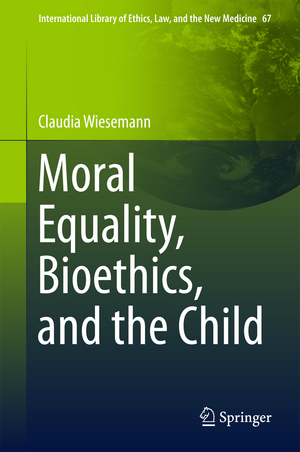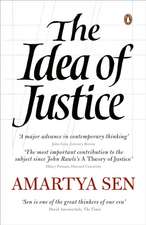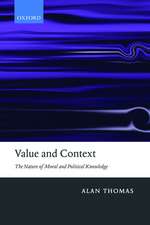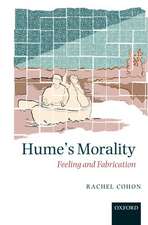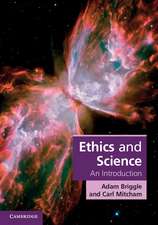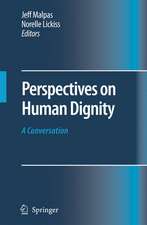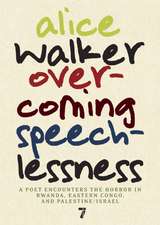Moral Equality, Bioethics, and the Child: International Library of Ethics, Law, and the New Medicine, cartea 67
Autor Claudia Wiesemannen Limba Engleză Hardback – 26 aug 2016
| Toate formatele și edițiile | Preț | Express |
|---|---|---|
| Paperback (1) | 447.24 lei 6-8 săpt. | |
| Springer International Publishing – 11 iun 2018 | 447.24 lei 6-8 săpt. | |
| Hardback (1) | 583.78 lei 6-8 săpt. | |
| Springer International Publishing – 26 aug 2016 | 583.78 lei 6-8 săpt. |
Din seria International Library of Ethics, Law, and the New Medicine
- 5%
 Preț: 347.30 lei
Preț: 347.30 lei -
 Preț: 397.26 lei
Preț: 397.26 lei - 15%
 Preț: 635.31 lei
Preț: 635.31 lei - 18%
 Preț: 942.76 lei
Preț: 942.76 lei - 5%
 Preț: 718.65 lei
Preț: 718.65 lei - 15%
 Preț: 634.68 lei
Preț: 634.68 lei - 15%
 Preț: 637.78 lei
Preț: 637.78 lei -
 Preț: 380.07 lei
Preț: 380.07 lei - 18%
 Preț: 959.98 lei
Preț: 959.98 lei - 15%
 Preț: 641.20 lei
Preț: 641.20 lei - 18%
 Preț: 944.19 lei
Preț: 944.19 lei - 15%
 Preț: 636.80 lei
Preț: 636.80 lei - 15%
 Preț: 643.00 lei
Preț: 643.00 lei - 18%
 Preț: 952.89 lei
Preț: 952.89 lei - 15%
 Preț: 643.48 lei
Preț: 643.48 lei - 18%
 Preț: 954.45 lei
Preț: 954.45 lei - 5%
 Preț: 1095.73 lei
Preț: 1095.73 lei - 15%
 Preț: 645.79 lei
Preț: 645.79 lei - 18%
 Preț: 1111.22 lei
Preț: 1111.22 lei - 15%
 Preț: 643.84 lei
Preț: 643.84 lei - 18%
 Preț: 1227.67 lei
Preț: 1227.67 lei - 18%
 Preț: 953.65 lei
Preț: 953.65 lei - 15%
 Preț: 638.57 lei
Preț: 638.57 lei - 5%
 Preț: 1101.21 lei
Preț: 1101.21 lei
Preț: 583.78 lei
Preț vechi: 686.79 lei
-15% Nou
Puncte Express: 876
Preț estimativ în valută:
111.72€ • 116.21$ • 92.23£
111.72€ • 116.21$ • 92.23£
Carte tipărită la comandă
Livrare economică 14-28 aprilie
Preluare comenzi: 021 569.72.76
Specificații
ISBN-13: 9783319324005
ISBN-10: 3319324004
Pagini: 165
Ilustrații: IX, 155 p.
Dimensiuni: 155 x 235 x 11 mm
Greutate: 0.41 kg
Ediția:1st ed. 2016
Editura: Springer International Publishing
Colecția Springer
Seria International Library of Ethics, Law, and the New Medicine
Locul publicării:Cham, Switzerland
ISBN-10: 3319324004
Pagini: 165
Ilustrații: IX, 155 p.
Dimensiuni: 155 x 235 x 11 mm
Greutate: 0.41 kg
Ediția:1st ed. 2016
Editura: Springer International Publishing
Colecția Springer
Seria International Library of Ethics, Law, and the New Medicine
Locul publicării:Cham, Switzerland
Cuprins
Part 1: Moral equality, bioethics, and the child.- Introduction.- The debate about moral equality.- Part 2: The theoretical framework of a moral-equality approach.- Natality.- Trust.- Family.- Autonomy.- Part 3: A moral-equality approach to childhood and other situations of dependency.- The dialectic of trust and autonomy.- Basic concepts for clinical practice.- Bibliographical references.
Recenzii
“Claudia Wiesemann's book, Moral Equality, Bioethics, and the Child (2016), is extremely relevant and important. … The reader is taken through a theoretical, practical and emotional journey that brings together ethical and bio-ethical dilemmas from the perspectives of both the child and the adult. … Wiesemann’s innovative and revolutionary moral equality approach invites not only parents, bioethicists, and healthcare professionals but also anyone who seeks to live in a moral society to adopt and practice its ideas.” (Limor Meoded Danon, Bioethical Inquiry, Vol. 16, 2019)
“In an era of complicated pediatric bioethical dilemmas due to technological advances, this book is a meaningful contribution to the debate about how much decision-making power a child should have in his or her medical treatment. … it is clear that she intends to reach readers interested in pediatric bioethics. This would include … ethics students, pediatric fellows and physicians, and clinical ethicists.” (Jacob Harrison, Doody's Book Reviews, January, 2017)
Notă biografică
Claudia Wiesemann is head of the department of Medical Ethics and History of Medicine at Goettingen University, Germany, and member of the German National Ethics Council. She studied medicine and philosophy and has been doing research in bioethics for more than 20 years. She directed several international research projects within the European Research Framework Program. Claudia Wiesemann is editor of the Journal “Ethik in der Medizin” and member of the International Network on Ethics of Family. Her interests are childhood ethics as well as the ethics of reproductive medicine and family.
Textul de pe ultima copertă
Presenting real life cases from clinical practice, this book claims that children can be conceived of as moral equals without ignoring the fact that they still are children and in need of strong family relationships. Drawing upon recent advances in childhood studies and its key feature, the ‘agentic child’, it uncovers the ideology of adultism which has seeped into much what has been written about childhood ethics. However, this book also critically examines those positions that do accord moral equality to children but on grounds not strong enough to support their claim. It lays the groundwork for a theory of moral equality by assessing the concepts of parenthood, family, best interest, paternalism, and, above all, autonomy and trust which are so important in envisioning what we owe the child. It does not only show how children – like adults – should be considered moral agents from infancy but also how ethical theories addressing adults can significantly profit from recognizing this. The analysis takes into account contributions from European as well as American scholars and makes use of a wide range of ethical, psychological, cultural, and social-scientific research.
Caracteristici
Presents a plausible theory of the moral equality of the child and discusses highly controversial bioethical cases Draws upon recent advances in childhood studies and its key feature, the ‘agentic child’, which, strangely enough, has been largely ignored in bioethics so far Uses an international approach borrowing what is best from national cultures and legislation Includes supplementary material: sn.pub/extras
